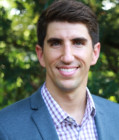Why Efforts to Reduce Income Gaps in U.S. Voting Should Concentrate on Boosting Participation by Poor Youth
In 2016, presidential candidate Bernie Sanders explained to Chuck Todd of Meet the Press that “poor people don't vote. I mean, that's just a fact . . . a sad reality of American society. And that's what we have to transform.” This claim reflects a long-standing finding that poor people participate in politics less than those who are in the middle or upper classes. In a time of growing income inequality and winner-take-all politics, this income gap at the polls represents a shortcoming in U.S. democracy that many elected officials and civic leaders want to fix.
A Focus on Childhood
In a recent study published in the American Journal of Political Science I set out to improve understandings of participation gaps between people of different income levels. I noticed that political scientists tend to think of income only in terms of the here and now -- whether individuals are currently rich or poor? However, it is difficult for people to move out of poverty in the United States, so I knew that many poor Americans are poor because they grew up that way. Yet no one had studied the link between growing up in a rich or poor home and political participation in adulthood. What if the income gap discussed by Sanders originated in childhood?
There are several reasons to think that growing up rich or poor might shape participation later in life. Scholars have long noted that childhood poverty is associated with a host of negative outcomes in adulthood: lower-quality education, lower levels of college attendance, lower income, poorer health, housing instability, and higher rates of criminal arrest, to name just a few.
Political scientists have also found that children who grow up poor discuss current events less often, are less knowledgeable about politics, and express less interest in politics. It thus seems likely that poor children would also grow up to participate less in politics.
To assess whether growing up rich or poor affects participation, I analyzed six surveys that measured the current income, economic background, and voter turnout of participants. In addition, the surveys I used either asked participants to recall their economic background during childhood, or followed the participants from childhood into adulthood (and thereby had reliable measures the economic background of participants).
The results of my analysis consistently show that survey respondents from rich backgrounds are more likely to vote than those from impoverished backgrounds – a finding that holds even after controls for other important predictors of turnout such as age, race, gender, parental education, church attendance, and marital status. Importantly, the results showed that growing up in a rich or poor home had a much greater effect on voter turnout in adulthood turnout than a person’s current income.
My study also shows that childhood economic background affects participation by shaping adults’ interest in politics, strength of partisanship, education, health, and current income. Specifically, those who grew up poor were less interested in politics, less likely to adopt a partisan identity, less educated, in poorer health, and had lower incomes. All of these factors reduced their political participation. All told, my study showed that there are two income gaps at the polls: one that comes from current income inequalities and another that results from inequalities in the economic circumstances in which people who are now adults grew up.
The High Value of Encouraging Youth Participation
Based on my research, I would encourage civic leaders and elected officials who, like Bernie Sanders, believe that economically unequal voter turnout weakens U.S. democracy to focus their attention on America’s youth. The change American democracy needs is not just a reduction in voting gaps between currently rich and poor citizens, but also a reduction in turnout gaps between Americans who grew up in rich versus poor homes. Closing this second gaps matters for two reasons:
- Because the income-participation gap originates in childhood – well before the age at which individuals can officially vote – some people find themselves sidelined in U.S. democracy before they even have a political voice. Economic background should not determine who does and does not vote. Therefore, it is important to encourage participation by all of America’s youth, ensuring that poor children do not reach voting age at a disadvantage.
- Because voting habits primarily develop in adolescence and young adulthood, encouraging participation among America’s youth is more likely to create a generation of life-long voters. In this sense, policies that target the civic engagement of poor adolescents and young adults, many of whom have a lower propensity to vote in the first place, will be more effective than policies that target on Americans who are not poor or who are already middle-aged or older.
In short, those who believe unequal turnout is a problem for American democracy should, first and foremost, encourage participation among poor youth. Targeted mobilization is likely to have the biggest effect in reducing income-related participation gaps that leave so many lower-income Americans with little voice in U.S. democracy.
Read more in Christopher Ojeda, “The Two Income-Participation Gaps,” American Journal of Political Science 62, no. 4 (2018): 813-829.
